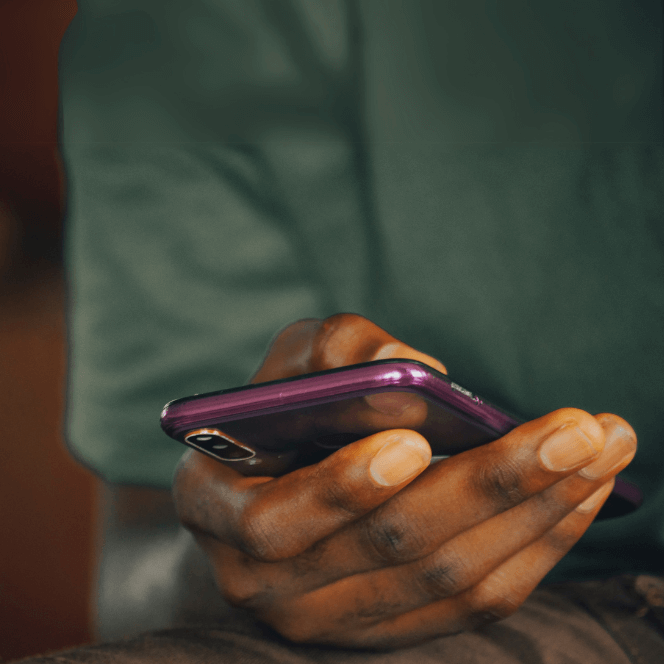Most young people from Black and racial minoritised communities surveyed about their social media use said they saw racist content at least once a week, a new report says.
More than half said this made them feel less safe, and 42% said it harmed their mental health, the report, Youth, Race and Social Media, funded by Meta, showed.
A team of four researchers from Goldsmiths, University of London, surveyed 809 Black and racial minoritised young people in Britain aged between 16 and 24, and conducted focus groups and interviews with 110. Of the 809:
- 95% said they had encountered violent or abusive racist content online
- 16% said they saw racist content online every day, including violence and abuse
- 38% said they saw this at least once a week
- 41% said they saw it occasionally, and 4% said they never saw it
- 75% of participants had encountered violent racist images or videos
- 30% said racist material took the form of private messages to them
- 13% said racist material took the form of posts on their own feeds.
This had an impact offline:
- 58% said it left them feeling less safe
- 42% said it harmed their mental health
- 18% said it affected friendships outside of their ethnic group
Young women faced particular forms of racist scrutiny including hyper-sexualisation and insults relating to their physical appearance.
Of the 809, 39% had reported the abuse to the social media platform but received no response; 40% reported it but received an unsatisfactory response; 6% reported it and received a satisfactory response; 15% did not report it. Only 10% reported it to the police, and 1 in 10 of these received a satisfactory response.
The young people were recruited via social media, mostly using Instagram, and 49% identified as Black ethnicity, 43% as Asian and 8% as from other racially minoritised backgrounds.
Of the 809, 87% of participants said they checked their social media accounts several times a day, 10% said they checked their social media accounts at least once a day, 2% said they checked a few times a week, and less than 1% said they checked less frequently.
The findings are part of the Race and Social Media project, funded by Meta, which owns Facebook. The team were: David Woodger, Dr Naomi Thompson, Natalie Law and Leo Freund-Williams.
Launching the report today, [Thursday, 24 April], Mr Woodger told the British Sociological Association annual conference in Manchester that: “Overall, young people appear to be experiencing social media as a place where racism thrives unchecked – with explicit racism, polarised debates and backlash as part of their experiences of encountering racial content on social media.
“A sense of hopelessness and futility often leads them to disengage from certain content or from social media altogether. Young people largely felt that social media platforms were not doing enough to respond to problematic content relating to race and racism.
“Social media platforms should find new ways to engage and communicate with young people about their experiences and how they might develop more effective responses.”
The report was the first comprehensive study of young BAME groups and their experience of social media platforms in the UK, he said.
Quotations from some of the 110 young people in the focus groups and interviews:
- “I think they should actually havea better filtering system – why are you showing me somebody who is calling Black people monkeys?”
- “I have seen the torrent of abuse that some influencers and community groups get when they share their opinion, and when I have shared something it’s been horrendous – I stopped posting after that.”
- “I take with me everywhere the feeling that I am hated, and it makes me sad, hurt and shameful, and I am fearful because it’s not the societal norm to be Black and a Muslim, being everything that society dislikes. How do you move around freely when you feel like this?”
- “I think social media companies really need to think about the concept of freedom of speech and how it’s been used. Particularly just to perpetuate culture wars which basically are just fascist, Islamophobic, homophobic, racist tropes that are spewed under the guise of freedom of speech.”
- “I am completely fed up with the comments and racism on many posts I am connected to, so I decided to withdraw, and me and my friends set our own groups up where we can share freely without attracting hostile and racist comments – I feel completely different as it’s empowering rather than draining on my emotions.”
- “The majority of hate online is targeted towards women. People try to be as offensive as possible. I think they use a lot of descriptors for that. So, it might be, ‘You fat ugly Black b*tch,’ for example.”
For more information, please contact:
Tony Trueman
British Sociological Association
Tel: 0044 (0)7964 023392
tony.trueman@britsoc.org.uk
Notes:
- The British Sociological Association’s Annual Conference takes place from 23 to 25 April 2025, with more than 700 papers presented. The BSA is a company limited by guarantee, registered in England and Wales. Company Number: 3890729. Registered Charity Number 1080235 www.britsoc.co.uk
- 2. Goldsmiths, University of London was founded in 1891 and is an institution with a rich academic history, known for its creative approach. Its 10,000 students are based on campus in the heart of southeast London’s New Cross community, studying undergraduate, postgraduate, teacher training and return-to-study courses in the arts and humanities, social sciences, cultural studies, law, computing, entrepreneurial business and management. Goldsmiths research shapes the future, changes lives and is at the forefront of creative practice, with almost three-quarters of research rated internationally excellent or world-leading by the 2014 Research Excellence Framework. Seven winners of the Turner Prize – and around a quarter of those shortlisted for the award since it began – have been former Goldsmiths students, while others have gone on to receive Oscars, Mercury Music prizes, Ivor Novellos and Baftas.


